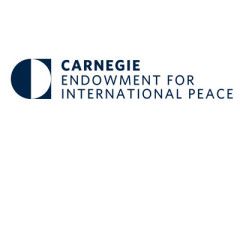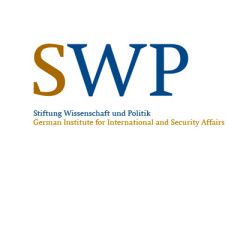Can Russia’s War in Ukraine End Without Nuclear Weapons?
“For Putin, this war is a game of a chicken.” …read more Source:: Carnegie Endowment for International...
The Importance of Being Russian: Can Belarus Survive the Kremlin’s War Against Ukraine?
The war has left Belarus in a predicament, which boils down to depending on Russia for everything without enjoying the advantages of being part of Russia. In combination with the simmering domestic crisis, it leaves ever fewer incentives for the ruling nomenklatura and wider society to value the current Belarusian statehood. …read more...
New Commander, New Goals for Russia in Ukraine
The new state-of-emergency laws introduced by the Kremlin in October are aimed at being able to provide a strategic defense of the “captured objectives” rather than all-out warfare to the bitter end. …read more Source:: Carnegie Endowment for International...
Friedensverhandlungen im Krieg zwischen Russland und der Ukraine: Mission impossible
Wladimir Putin eskalierte im September 2022 den russischen Krieg gegen die Ukraine. Er kündigte eine Teilmobilisierung an und wiederholte seine Drohung mit dem Einsatz von Nuklearwaffen. Es war aber vor allem die proklamierte Annexion der ukrainischen Gebiete Luhansk, Donezk, Saporischschja und Cherson, mit der er einen Schlussstrich unter die...
Russia’s War on Ukraine and the Rise of the Middle Corridor as a Third Vector of Eurasian Connectivity
Among the many significant geopolitical consequences of Russia’s war against Ukraine has been the reinvigoration of the Middle Corridor, both as a regional economic zone comprising Central Asia, the Caucasus, and Turkey but also as an increasingly attractive alternative route between Europe and China. Russia’s war has disrupted...
Judy Asks: Is European Support for Ukraine Dependent on the United States?
The Biden administration has led the Western military and economic response to Russia’s attack on Ukraine. Europe must be ready to act independently if and when Washington’s policy changes. …read more Source:: Carnegie Endowment for International...
North Korea’s fait accompli
While the world’s attention is focused on Russia’s war against Ukraine and the intensifying conflict between the US and China, the security situation on the Korean Peninsula has continued to deteriorate. North Korea is steadily advancing the expansion of its military capabilities and recently undertook significant changes in its...
Nuklearmacht Nordkorea – ein Fait accompli
Während die Weltöffentlichkeit auf Russlands Krieg gegen die Ukraine und den sich verschärfenden Konflikt zwischen den USA und China blickt, hat sich die Sicherheitslage auf der koreanischen Halbinsel weiter verschlechtert. Nordkorea treibt den Ausbau seiner militärischen Fähigkeiten kontinuierlich voran und hat jüngst seine Nukleardoktrin...
Russia’s Catch-all Nuclear Rhetoric in Its War against Ukraine
A close reading of Russia’s nuclear statements and actions during the first seven months of its war against Ukraine reveals a threefold approach. Moscow is walking a fine line between a well-crafted and successful deterrence strategy to prevent foreign military intervention; a more modest and rather unsuccessful attempt at dissuading...
Russlands diffuse Nuklearrhetorik im Krieg gegen die Ukraine
Russland verfolgt mit seinen nuklearen Drohgebärden im Krieg gegen die Ukraine eine dreigleisige Strategie. Erstens versucht es eine westliche Intervention abzuschrecken, zweitens Unterstützung für die Ukraine zu verhindern und drittens schrittweise Kyjiw zu erpressen, worauf der Westen bislang mit eigenen Abschreckungssignalen reagiert hat....



